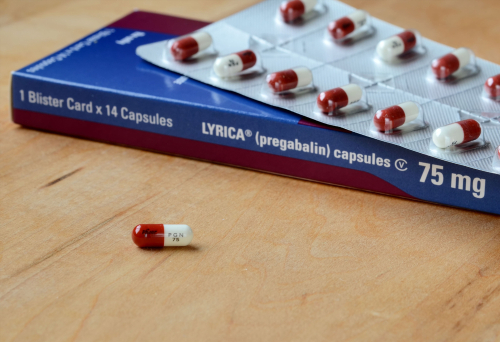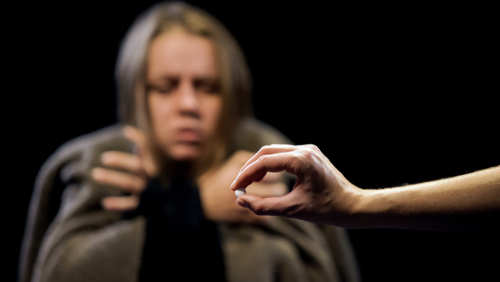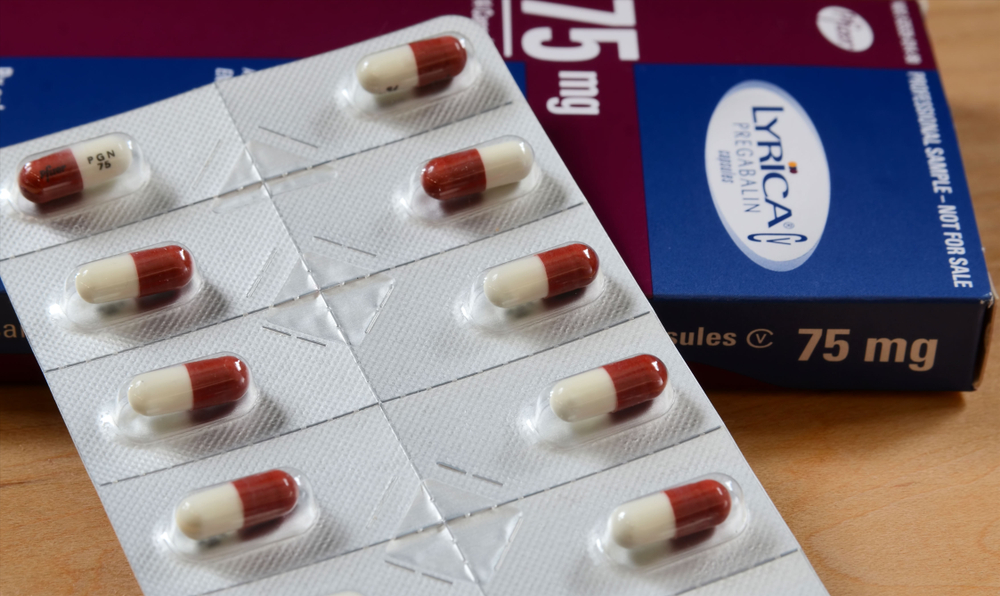Lyrica, a prescription medication known for treating conditions like seizures, can provide relief to individuals experiencing painful health conditions. However, prolonged use of the drug or misuse of the drug can result in an individual developing a Lyrica addiction. This addiction can cause withdrawal symptoms when individuals try to stop taking Lyrica, resulting in physical and mental health conditions. By understanding the withdrawal symptoms, timeline, and treatment for Lyrica, individuals can make informed decisions on discontinuing the use of the drug.
In this article, we will cover what Lyrica is, if individuals can become addicted to Lyrica, and gain an understanding of the entire Lyrica withdrawal process.
What is Lyrica?
Lyrica, also known as pregabalin, is a medication approved by the Food and Drug Administration (FDA) to treat conditions like epilepsy, fibromyalgia, and nerve pain. The drug works by slowing down brain impulses associated with seizures and alleviating nerve pain by affecting the chemicals involved in pain signals. It belongs to the anticonvulsant class of medications known as gabapentinoids, which include the medications gabapentin and pregabalin. According to the New England Journal of Medicine, Lyrica was the 10th most common prescription drug in the United States in 2016, with 64 million prescriptions filled that year.
With many individuals using Lyrica, it is essential to understand the side effects of using Lyrica. While some individuals experience effects similar to feeling drunk when taking the drug, there are also common side effects that can occur. These side effects can include:
- Dizziness
- Fatigue
- Impaired coordination
- Blurred vision
- Tremors
- Fluctuations in weight
- Memory problems
- Euphoria

Can You Be Addicted to Lyrica?
Although it is not classified as a controlled substance by the US Drug Enforcement Administration (DEA), there have been reports of individuals developing a dependence on Lyrica, leading to the question of whether it can be addictive.
In recent years, there has been a concerning rise in recreational abuse of Lyrica. Individuals may take higher doses than prescribed or use different methods of administration, like inhaling or injecting it, to experience feelings of euphoria and detachment from reality. Emergency rooms have reported an increase in patients experiencing adverse effects due to Lyrica abuse, including seizures, requiring intensive care treatment. Combining Lyrica with other substances particularly opiates like heroin, can also significantly increase the risk of overdose and even death.
Learn More: Compulsive vs. Impulsive Addiction Habits
Understanding Lyrica Withdrawal
Lyrica can potentially cause physical dependence and withdrawal symptoms if used for an extended period or in higher-than-recommended doses. Prolonged Lyrica abuse may cause psychological and physical dependence on the effects of the drug, leading to withdrawal symptoms.
Symptoms of Lyrica Withdrawal
Symptoms of Lyrica withdrawal can vary in type and severity, depending on individual factors such as the dosage and duration of Lyrica use and the individual’s overall health. It’s essential to remember that not everyone who stops taking Lyrica will experience withdrawal symptoms, but for those who do, it can be a challenging experience. Some common symptoms of withdrawal may include:
- Anxiety
- Insomnia
- Mood swings
- Muscle pain
- Irritability
- Headaches
- Increased heart rate
- Dizziness
- Nausea or vomiting
- Drug cravings
- Suicidal thoughts
- Seizures

Lyrica Withdrawal Timeline
The Lyrica withdrawal timeline can vary depending on individual factors such as the dosage, duration of use, and overall health. When an individual decides to stop taking Lyrica, they may experience a range of withdrawal symptoms as their body adjusts to the absence of the drug. These symptoms can persist from a few days to several weeks, depending on the individual. A typical Lyrica withdrawal timeline may look like this:
- Initial 1-2 Days: Acute withdrawal symptoms may begin within the first day or two after discontinuing Lyrica. These symptoms can include anxiety, insomnia, nausea, sweating, muscle pain, and irritability.
- First Week: During the first week, the intensity of withdrawal symptoms may peak. Individuals may experience a variety of physical and emotional discomforts. The severity of symptoms can vary, and some individuals may find it challenging to cope with the changes.
- Week 2 to 4: In the following weeks, the acute withdrawal symptoms typically begin to subside. However, some lingering symptoms may persist. Individuals may still experience mood swings, anxiety, and sleep disturbances during this period.
- Week 4 and Beyond: By week four, most individuals should start feeling more stable as their body adapts to functioning without Lyrica. Most withdrawal symptoms will have subsided by this time, and individuals will return to before the addiction.
To minimize the discomfort during withdrawal, it’s essential to taper off Lyrica gradually under the supervision of a healthcare professional. Tapering allows the body to adjust more smoothly to lower levels of the drug, reducing the intensity of the withdrawal timeline.
Treating Lyrica Withdrawal
Treating Lyrica withdrawal involves a combination of supportive measures and, in some cases, medical interventions to alleviate withdrawal symptoms and ensure a safe and smooth transition. It’s important to remember that the approach to treating Lyrica withdrawal may vary based on individual factors, such as the duration and dosage of Lyrica use and the severity of withdrawal symptoms. Treatment for Lyrica withdrawal will typically occur at a treatment center, ensuring the care is under medical supervision and a safe treatment plan is implemented.
While the treatment for Lyrica may differ from individual to individual, most treatment plans will include the following:
- Tapering Off: Gradual tapering is the preferred method for stopping Lyrica to reduce the intensity of withdrawal symptoms. Abruptly discontinuing the drug can lead to more severe and uncomfortable symptoms. The healthcare provider will determine the appropriate tapering schedule based on the individual’s specific circumstances.
- Medical Detox: Medical detox is the typical first step when treating any drug addiction or substance abuse. This step allows individuals to slowly and safely come off of the substances while managing withdrawal symptoms. In the context of Lyrica withdrawal, medical detox may not be necessary unless the individual experiences severe withdrawal symptoms.
- Behavioral Therapies: When being treated for addiction, many healthcare professionals will utilize behavioral therapies to address the underlying causes of addiction. These therapies can include cognitive-behavioral therapy, adventure therapy, or mindfulness practices.
- Aftercare Support: Once treatment has been completed at the treatment center, individuals can continue their treatment with aftercare services. These services may include the individual continuing to go to therapy sessions, attending support group meetings, or utilizing medication for any lingering symptoms.
Read More: Does Your Body Detox From Drugs When You Start Eating Healthy?

Medical Detox Available with MD Home Detox
While Lyrica may not be the most addictive substance out there, it still has the potential to cause serious harm to individuals who misuse the drug. Drug abuse can negatively affect many areas of life, and when recovering from this addiction, finding the proper addiction treatment is vital. As mentioned above, medical detox is a common first step in this recovery process, making it one of the most crucial aspects of healing.
At MD Home Detox, located in Los Angeles, CA, we provide our clients with a medically supervised detox from the comfort of their own homes. This allows clients to feel safe while undergoing the difficulties of withdrawal. We offer medical detox for all kinds of substance abuse, ensuring we can help as many individuals as possible begin their new life.
If you or a loved one want to start your recovery journey, contact our specialists today to learn more about our services.

